 |
Powerless communicators tend to speak less assertively, expressing plenty of doubt and relying heavily on advice from others.
|
130 |
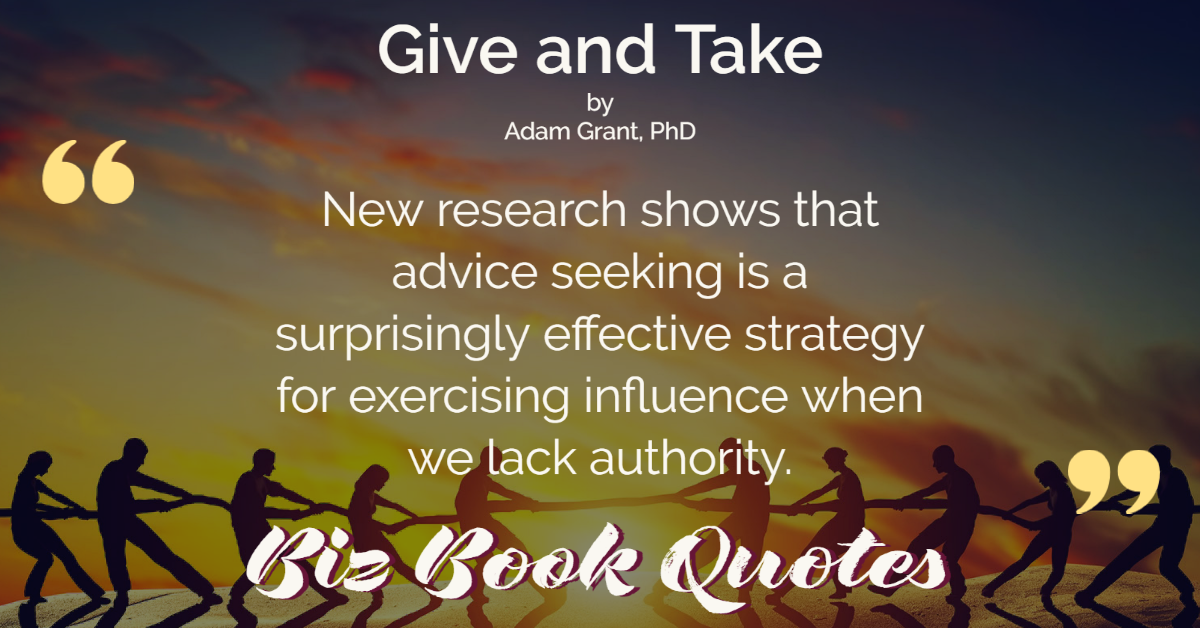 |
New research shows that advice seeking is a surprisingly effective strategy for exercising influence when we lack authority.
|
150 |
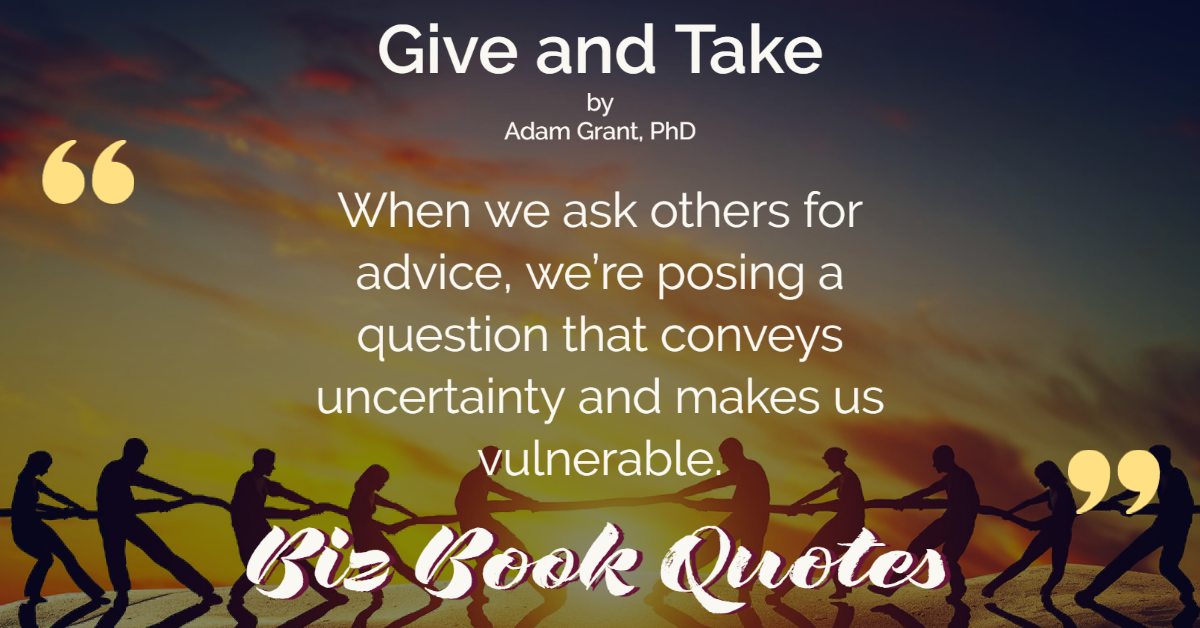 |
When we ask others for advice, we’re posing a question that conveys uncertainty and makes us vulnerable.
|
151 |
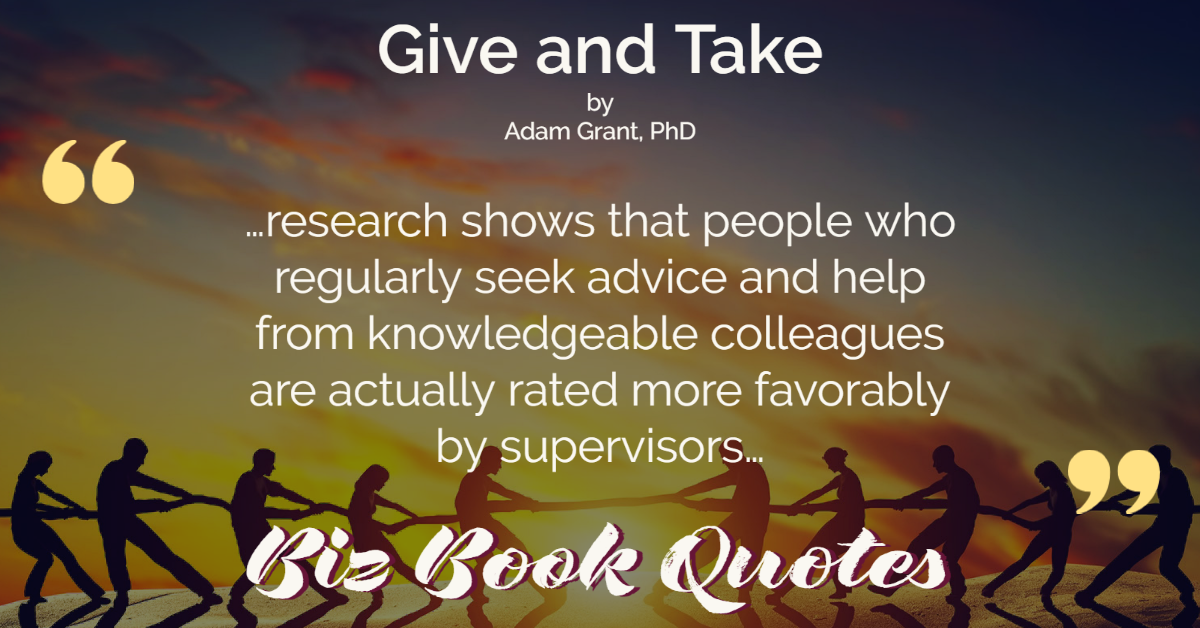 |
…research shows that people who regularly seek advice and help from knowledgeable colleagues are actually rated more favorably by supervisors…
|
151 |
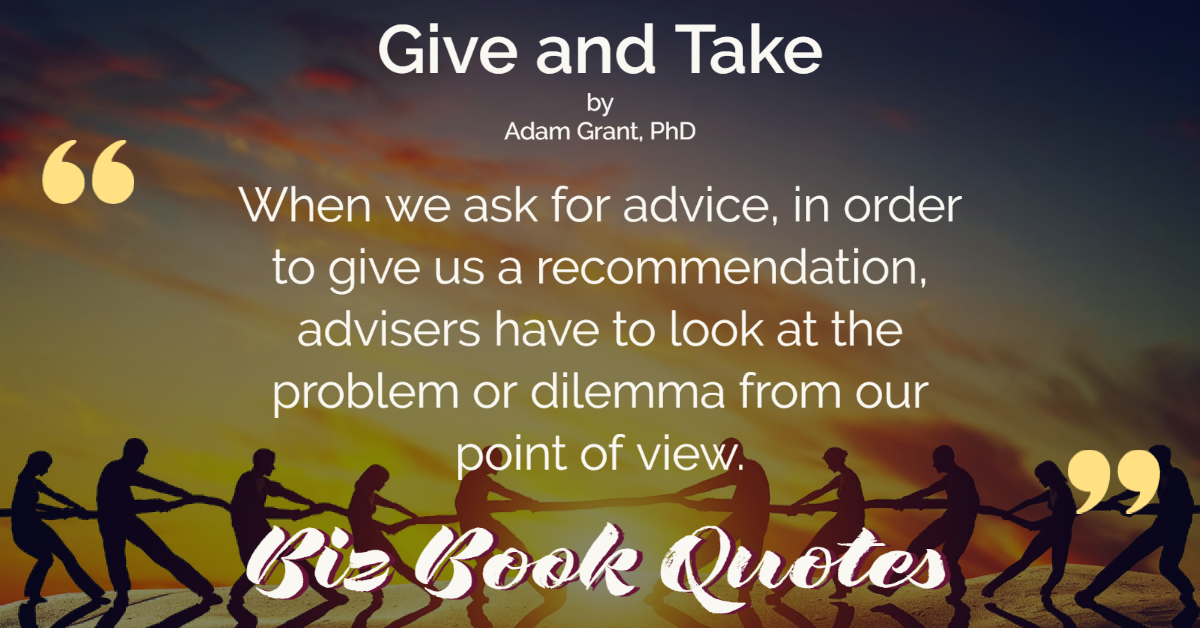 |
When we ask for advice, in order to give us a recommendation, advisers have to look at the problem or dilemma from our point of view.
|
151 |
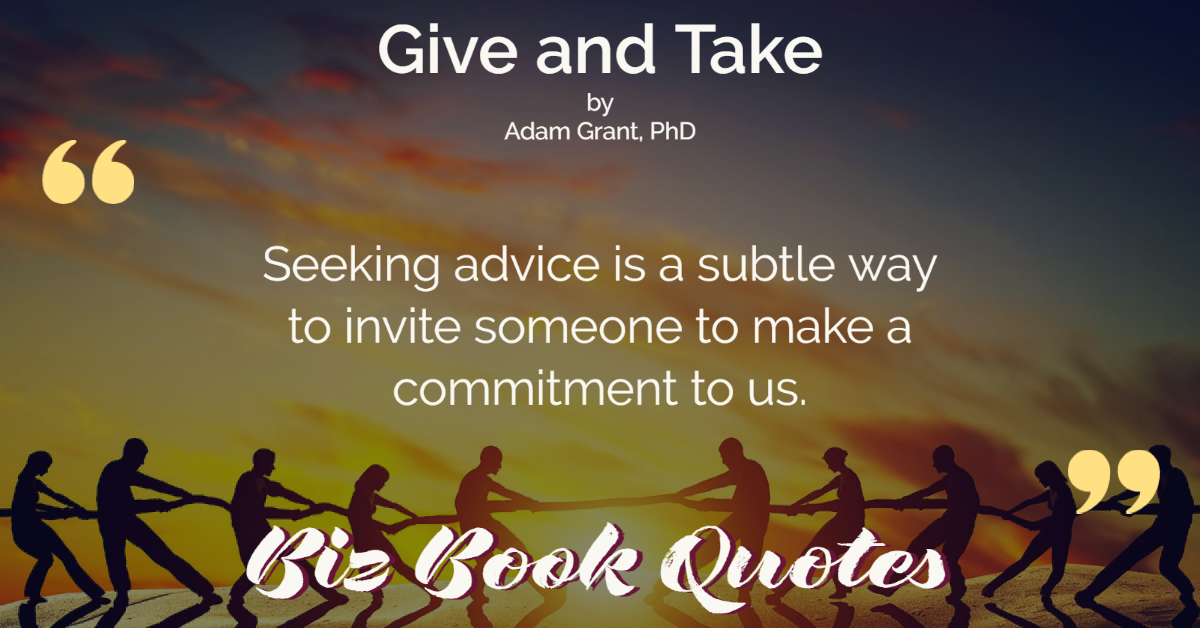 |
Seeking advice is a subtle way to invite someone to make a commitment to us.
|
152 |
 |
Regardless of their reciprocity styles, people love to be asked for advice. Giving advice makes takers feel important, and it makes givers feel helpful.
|
153 |
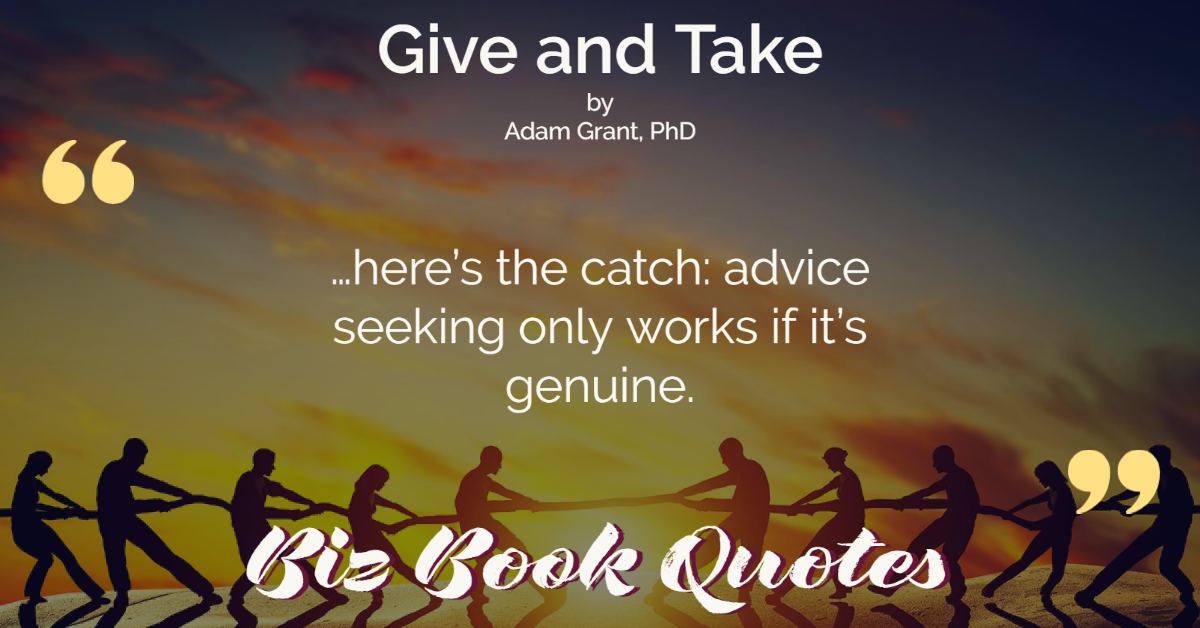 |
…here’s the catch: advice seeking only works if it’s genuine.
|
153 |
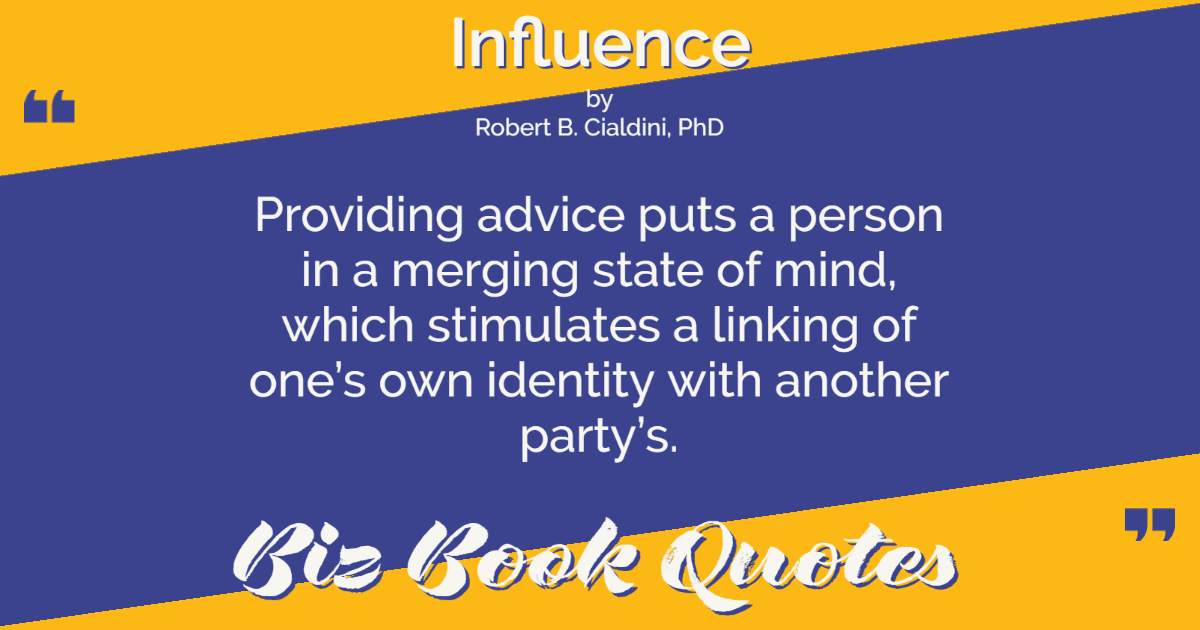 |
Providing advice puts a person in a merging state of mind, which stimulates a linking of one’s own identity with another party’s.
|
415 |
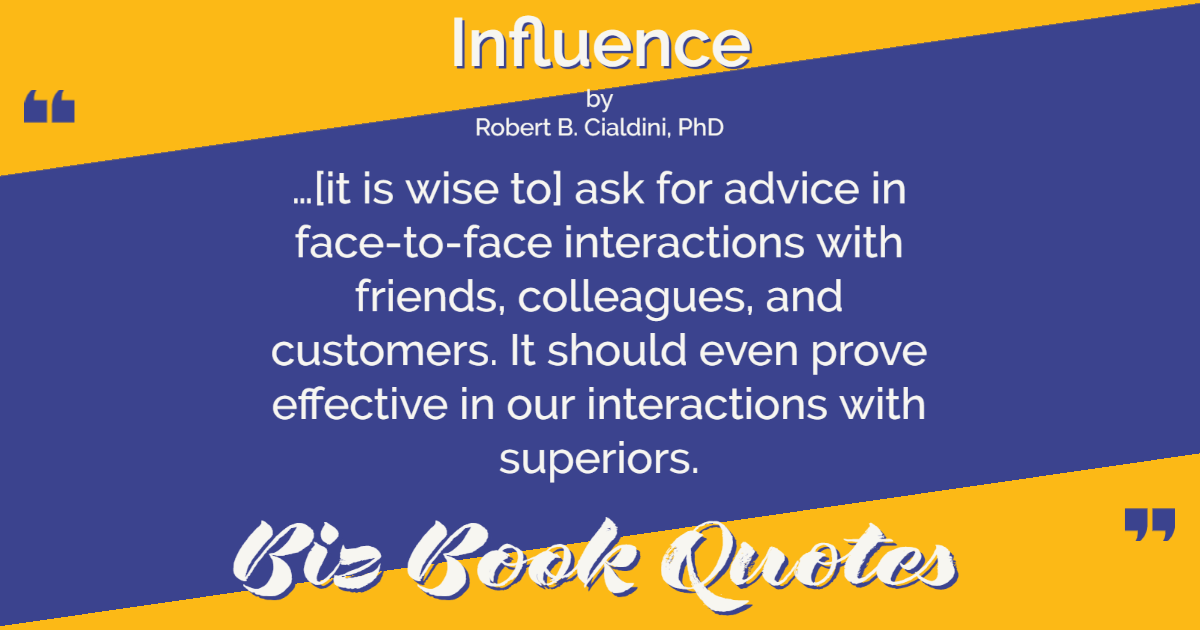 |
…[it is wise to] ask for advice in face-to-face interactions with friends, colleagues, and customers. It should even prove effective in our interactions with superiors.
|
416 |